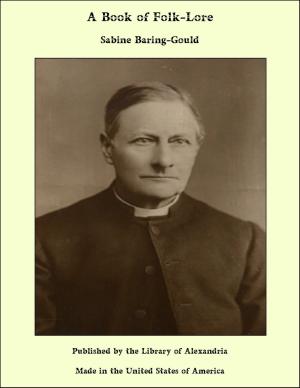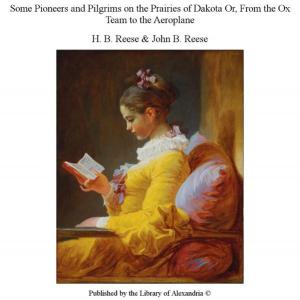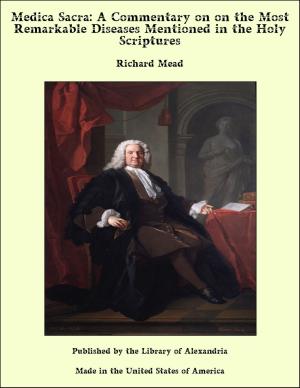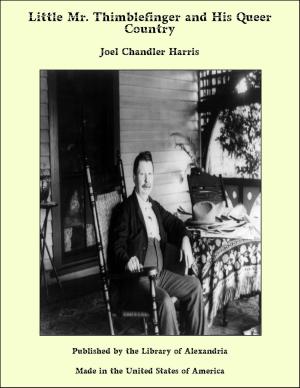| Author: | Benjamin Leopold Farjeon | ISBN: | 9781465593580 |
| Publisher: | Library of Alexandria | Publication: | March 8, 2015 |
| Imprint: | Language: | English |
| Author: | Benjamin Leopold Farjeon |
| ISBN: | 9781465593580 |
| Publisher: | Library of Alexandria |
| Publication: | March 8, 2015 |
| Imprint: | |
| Language: | English |
On a bright, snowy night in December, 1871, Dr. Spenlove, having been employed all the afternoon and evening in paying farewell visits to his patients, walked briskly towards his home through the narrowest and most squalid thoroughfares in Portsmouth. The animation of his movements may be set down to the severity of the weather, and not to any inward cheerfulness of spirits, for as he passed familiar landmarks, he looked at them with a certain regret, which men devoid of sentiment would have pronounced an indication of a weak nature. In this opinion, however, they would have been wrong, for Dr. Spenlove's intended departure early the following morning from a field which had strong claims upon his sympathies was dictated by a law of inexorable necessity. He was a practitioner of considerable skill, and he had conscientiously striven to achieve a reputation in some measure commensurate with his abilities. From a worldly point of view his efforts had been attended with mortifying failure; he had not only been unsuccessful in earning a bare livelihood, but he had completely exhausted the limited resources with which he had started upon his career; he had, moreover, endured severe privation, and an opening presenting itself in the wider field of London, he had accepted it with gladness and reluctance. With gladness, because he was an ambitious man, and had desires apart from his profession; with reluctance, because it pained him to bid farewell to patients in whom he took a genuine interest, and whom he would have liked to continue to befriend. He had, indeed, assisted many of them to the full extent of his power, and in some instances had gone beyond this limit, depriving himself of the necessaries of life to supply them with medicines and nourishing food, and robbing his nights of rest to minister to their woes. He bore about him distinguishing marks of the beautiful self-sacrifice. On this last night of his residence among them, his purse was empty, and inclement as was the weather, he wore, on his road home, but one thin coat, which was but a feeble protection from the freezing air, which pierced to his skin, though every button was put to its proper use. A hacking cough, which caused him to pause occasionally, denoted that he was running a dangerous risk in being so insufficiently clad; but he seemed to make light of it, and smiled when the paroxysm was over. In no profession can be found displayed a more noble humanity and philanthropy than in that which Dr. Spenlove practised, and, needy as he was, and narrow as had been his means from the start, his young career already afforded a striking example of sweet and unselfish attributes. In the Divine placing of human hosts, the poor doctor and the poor priest shall be found marching in the van side by side.
On a bright, snowy night in December, 1871, Dr. Spenlove, having been employed all the afternoon and evening in paying farewell visits to his patients, walked briskly towards his home through the narrowest and most squalid thoroughfares in Portsmouth. The animation of his movements may be set down to the severity of the weather, and not to any inward cheerfulness of spirits, for as he passed familiar landmarks, he looked at them with a certain regret, which men devoid of sentiment would have pronounced an indication of a weak nature. In this opinion, however, they would have been wrong, for Dr. Spenlove's intended departure early the following morning from a field which had strong claims upon his sympathies was dictated by a law of inexorable necessity. He was a practitioner of considerable skill, and he had conscientiously striven to achieve a reputation in some measure commensurate with his abilities. From a worldly point of view his efforts had been attended with mortifying failure; he had not only been unsuccessful in earning a bare livelihood, but he had completely exhausted the limited resources with which he had started upon his career; he had, moreover, endured severe privation, and an opening presenting itself in the wider field of London, he had accepted it with gladness and reluctance. With gladness, because he was an ambitious man, and had desires apart from his profession; with reluctance, because it pained him to bid farewell to patients in whom he took a genuine interest, and whom he would have liked to continue to befriend. He had, indeed, assisted many of them to the full extent of his power, and in some instances had gone beyond this limit, depriving himself of the necessaries of life to supply them with medicines and nourishing food, and robbing his nights of rest to minister to their woes. He bore about him distinguishing marks of the beautiful self-sacrifice. On this last night of his residence among them, his purse was empty, and inclement as was the weather, he wore, on his road home, but one thin coat, which was but a feeble protection from the freezing air, which pierced to his skin, though every button was put to its proper use. A hacking cough, which caused him to pause occasionally, denoted that he was running a dangerous risk in being so insufficiently clad; but he seemed to make light of it, and smiled when the paroxysm was over. In no profession can be found displayed a more noble humanity and philanthropy than in that which Dr. Spenlove practised, and, needy as he was, and narrow as had been his means from the start, his young career already afforded a striking example of sweet and unselfish attributes. In the Divine placing of human hosts, the poor doctor and the poor priest shall be found marching in the van side by side.















